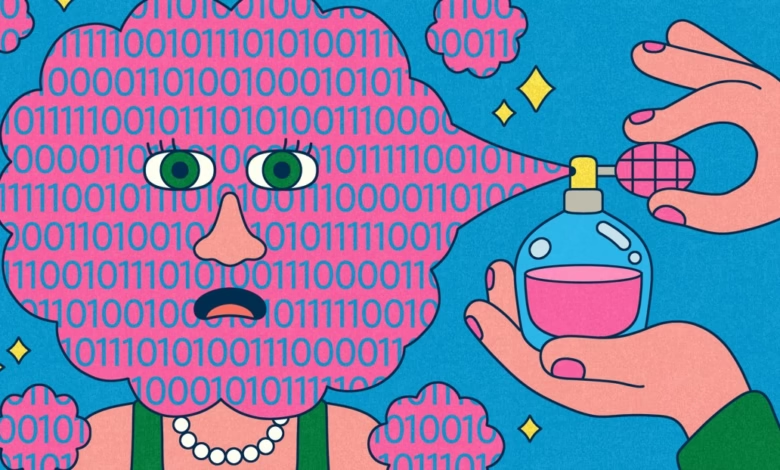How AI Is Revolutionizing the Perfume Industry

▼ Summary
– Osmo, a fragrance tech startup, uses AI to create custom perfumes with a 48-hour turnaround, disrupting the traditionally slow fragrance development process.
– Traditional perfumery involves months of formulation, raw material cultivation, and regulatory reviews, while AI accelerates scent creation but raises concerns about craftsmanship.
– Major fragrance conglomerates like Givaudan and DSM-Firmenich already integrate AI into their processes, aiding perfumers with technical tasks while preserving creative roles.
– Critics question AI’s transparency, environmental impact, and ethical implications, such as undisclosed datasets, energy use, and deepfake marketing in the fragrance industry.
– The tension between AI-driven efficiency and traditional perfumery’s artistry highlights debates over democratization versus the loss of human touch in fragrance creation.
In a high-tech Manhattan lab, the future of fragrance is being rewritten by artificial intelligence. Startups like Osmo are transforming how perfumes are created, compressing months of traditional craftsmanship into mere days. By digitizing scent molecules and leveraging AI-driven formulation, they promise custom fragrances delivered faster than an Amazon Prime package. But this revolution raises pressing questions about artistry, transparency, and what we lose when algorithms replace human intuition.
For centuries, perfumery has been a slow, meticulous craft. Master perfumers spend years refining their palettes, blending natural ingredients that require extensive aging, like orris root or sandalwood, before they’re even ready for use. A single fragrance might undergo hundreds of iterations before reaching store shelves, with each modification tested for balance, longevity, and emotional resonance. Climate variations further complicate the process, as harvests yield subtly different aromatic profiles year after year.
Osmo’s approach upends this tradition. Using graph neural networks, the company analyzes and replicates scents at unprecedented speed, offering clients tailored perfumes in 48 hours. At a recent industry event, their “digitized plum” prototype sparked debate: while impressively realistic, some perfumers found it sterile, lacking the imperfections, bruises, ripeness and warmth, that give natural ingredients depth. The tension between efficiency and artistry is palpable. As one critic put it, “Where’s the perfumer in this equation?”
AI’s footprint in fragrance isn’t limited to startups. Industry giants like Givaudan and DSM-Firmenich already integrate machine learning into their workflows. Tools like Carto and EmotiON help perfumers optimize formulas for stability, regulatory compliance, and even emotional impact. Frank Voelkl, the nose behind cult favorites like Le Labo’s Santal 33, describes AI as a “clerk” handling technical grunt work, freeing him to focus on creativity. Yet younger perfumers, particularly Gen Z, treat these systems as foundational, using them not just for troubleshooting but for core tasks like material selection and accord-building.
The democratization of fragrance creation comes with trade-offs. Pierre Vouard, a professor at FIT, predicts hand-weighed compounds will vanish, questioning whether that loss matters. Meanwhile, critics like perfumer Michael Nordstrand warn of opacity: AI-driven brands rarely disclose their training data or formulas, leaving consumers unaware of what’s behind their bespoke scents. When companies bypass experts to target untrained noses, the line between innovation and exploitation blurs.
Environmental concerns add another layer. While Osmo claims its models require minimal energy compared to large language models like ChatGPT, it doesn’t track consumption, nor has it shared lifecycle assessments against traditional perfumery’s footprint. The push for mass customization also risks distancing consumers from raw materials’ origins, where patience and natural processes define quality.
Retailers like Stéle see the fallout daily. Co-owner Matt Belanger recounts brands misrepresenting AI-generated scents as perfumer-led creations. “Transparency would earn respect,” he argues. Without it, the industry risks a Jurassic Park scenario, racing ahead without asking whether it should. As deepfake ads and unauthorized perfumer likenesses proliferate, the call for accountability grows louder.
Perfume has always been a bridge between science and soul. Now, as AI reshapes its foundations, the challenge lies in preserving the humanity behind the artistry, before the algorithm becomes the only author left.
(Source: The Verge)